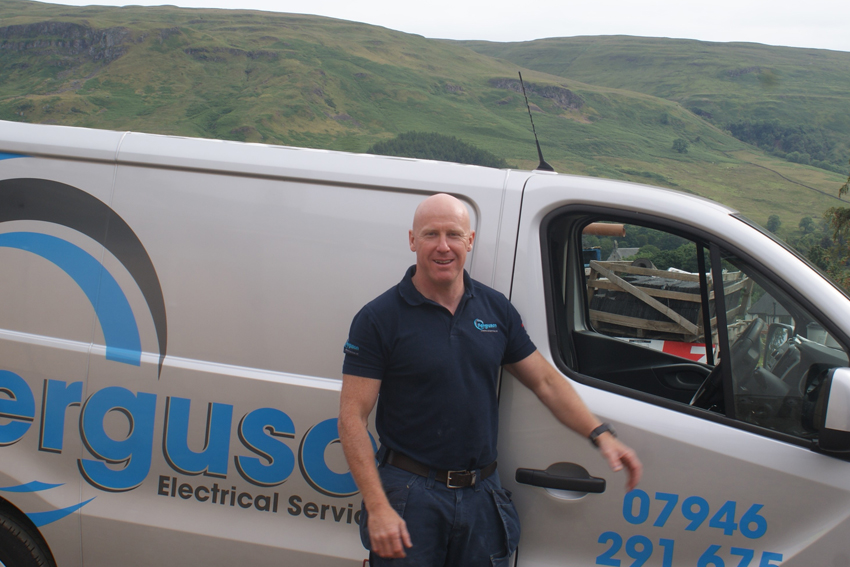Are you seeking a career that sparks joy every day? Something challenging, technical and very much in demand? Well, this could be your light bulb moment!
Electricians are some of the most sought-after tradespeople in the UK. At the end of 2018 figures showed there were around 265,000 people working as electricians and electrical fitters across the country.
Working as an electrician is a varied and challenging role that typically involves installing, testing and maintaining a huge range of electrical equipment and appliances, in both domestic and commercial settings.
And, as renewable energy continues to evolve, so too does the demand for highly skilled professionals.
The rewards are worth it. Typically, electricians earn the most out of all the recognised trades – and this doesn’t include the earnings boost that can come from overtime and specialised agency work.
There are also opportunities to join one of the many new and pioneering start-up electrical companies in the UK.
After working as an electrician for large and medium-sized companies for 30 years, Scott Ferguson decided to set up his own company – Ferguson Electrical – carrying out domestic, commercial and industrial installations.
For Scott it’s the variety of work that’s the most appealing aspect of his current role.
“The work can range from a simple light fitting to a full house rewire. With new technology – such as WiFi-controlled lighting and ever more complex electrical heating systems – as well as changing regulations, there is always a challenge.
“As an electrician you certainly need to keep your knowledge of emerging technology and new rules current and up to date.”
Scott admits there is no such thing as a typical working day, as the type of work and location can be extremely varied.
“I plan my work days at least a week in advance but I’m also prepared for things to change. It’s important to be ready to adapt your timetable and reprioritise when necessary.
“There can always be unforeseen challenges with new technology, unusual electrical faults or changing deadlines. That’s why, as an electrician, it’s so important to work through things methodically in order to solve unexpected issues.
“From day one you should be prepared to work well under pressure.”
This is where the training kicks in for the professionals but first you need to get qualified. In the UK this means gaining an industry-recognised Level 3 qualification, which can either be an NVQ in Electrotechnical Services, an NVQ in Installing Electrotechnical Systems and Equipment or a diploma in Electrical Installations.
Many electricians start out by doing an apprenticeship, which combines on-the-job experience and training with classroom-based learning. The apprenticeship route typically takes three years to complete and usually comprises four days a week of practical experience with an employer, plus one day week at college. There are also classroom-based college courses available, which can be completed in as little as two years for those bright spark advanced students.
Scott points out: “All fully qualified electricians also need be fully up to date with the current wiring regulations. The regulations change periodically – the 18th Edition of The IET Wiring Regulations launched last year – so there is always a need to be actively renewing your qualifications.”
He adds: “There is the opportunity to gain additional qualifications to allow you to carry out certain work. For example, I have the City and Guilds Inspection and Testing qualification. This allows me to inspect, test and certify domestic installations in accordance with the latest Part B Building regulations.”
On completion of all the necessary certification, there are plenty of additional optional training modules that can be obtained, which can further your career development opportunities – and really boost your earning potential. Such courses include Electrical Design, Solar PV Installation, and Electric Vehicle Charging. In the world of renewables, it pays to stay current! There are also courses that help fully-qualified electricians to develop their corporate and administrative abilities.
Beyond the qualifications and technical know-how, Scott pinpoints certain skills the successful electrician should have.
“Firstly, good communication skills are important – after all, you’re dealing with a variety of people, including homeowner customers, business owners and suppliers. I also liaise with other tradespeople on bigger projects.
“When it comes to complex electrical work, problem solving is a must too. Good organisational skills allow you to schedule your work and arrange for back-up plans.
“Finally, you must be able to work under pressure while at all times being aware to maintain a safe work environment.”
Having the skills to operate in so many different sectors means electricians can seek out new career opportunities.
Scott’s long-term plans are to continue to grow his business without compromising the service and quality of work provided by Ferguson Electrical.
“We are still a relatively new company but we have ambitions to take on an apprentice in the future. I feel it’s really important to give someone the opportunities I was given and help them develop and achieve a career in this industry.
“The best career advice I’ve ever been given was simple: work hard and stay motivated.”
If meeting Scott has inspired you to transform your own career prospects, then have a look at the current vacancies in Construction and Skilled Trades on [site_name].
It could lead to a supercharged role!
